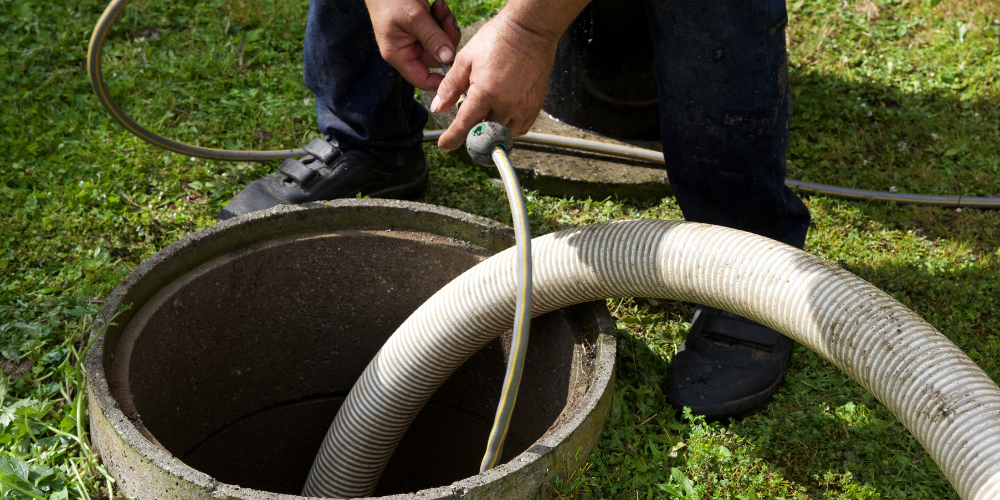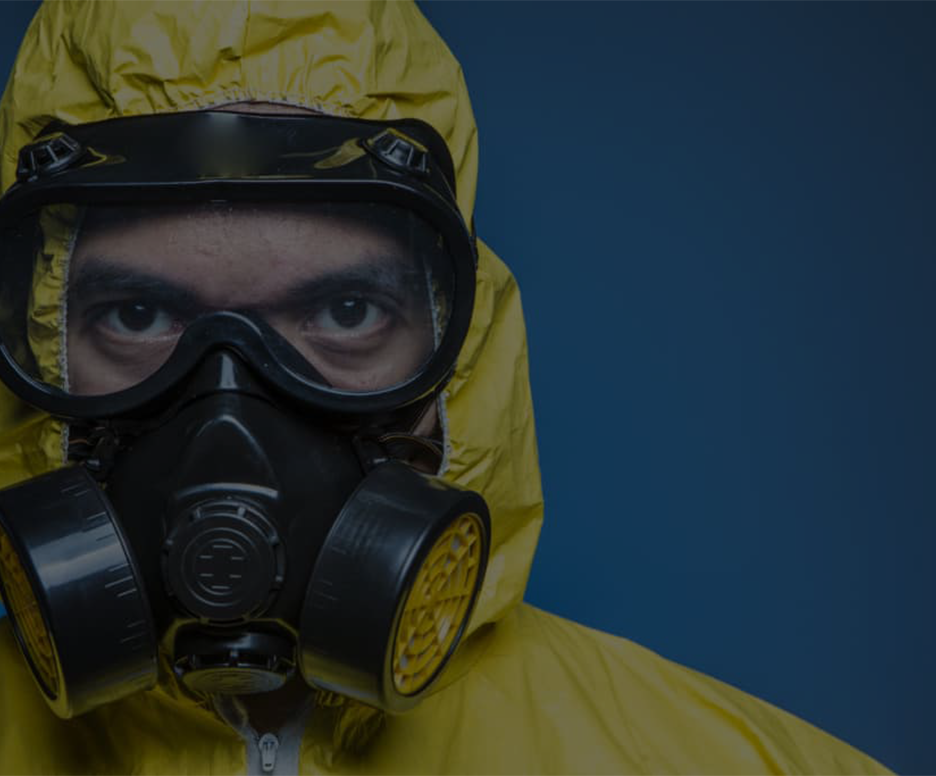
What To Do When My Sewer Backs Up?
By: 911 Water Damage Experts
Sewer back ups are a common issue that does not go away on their own. You must act quickly to fix any issues with your home’s wastewater line if you want to keep the slow flow from totally obstructing all drainage from your house.
Wastewater can overflow into your home from a completely blocked sewer line, posing a health risk and complicating cleanup efforts.
In this article you will answer:
What is a sewer back up?
What are early signs of sewer back up?
What causes sewer back up?
How to avoid a sewer back up problem?
How to spot sewer back up?
What to do if your sewer backs up?
What’s the fastest way to fix water damage from sewer back up?
Let’s get right into it!
What is a sewer back up?
Both incoming and exiting sewer pipes are present in your home. Wastewater lines, also known as sewage lines, are responsible for transporting spent water from your washing machine, tub, shower, toilets, and sinks outside of your house. Sewer water will back up into your property if the waste line is blocked or is breached. So water entering your property can have a variety of effects, including contamination, the formation of mould, and water damage.
Early signs of a sewer line back up
There may be non-obvious symptoms that your sewer line is having issues. Although it can be simple for you to dismiss these early indications of a backup, you shouldn’t. Your best option is to address the issue before sewage overflows into your bathroom.
A critical indication that you have a construction issue in your sewer system is slow drains throughout the entire house. You can usually fix a single damaged pipe by yourself using a plunger or a hair remover. However, you know you have a sewer line issue when it affects numerous drains at once. When waste from a washing machine or toilet flushes back into another pipe, this is another indication of a sewer drain problem. You have a serious issue when garbage builds up and overflows drains in your house. You have a more serious problem.
Signs of an emergency
Knowing whether a sewage problem is serious will help you decide if you need immediate repairs or if you can wait for a plumbing firm to open. Sewer backups can become more problematic if you do not know how to remedy them and do not get a plumber to fix your plumbing when they are minor.
In the event of an emergency backup, waste will back up into your home through clogged drains. Your toilet may occasionally back up, spilling contaminated liquid over the bathroom floor. Do not disregard this circumstance. Since human faeces generates a biohazard, you must stay away from the area until it has been completely cleaned and sanitised. Until the drainage system is fixed, you should also forbid anyone from using the plumbing in your house. Having a local plumber’s emergency phone number handy is therefore essential to repairing your home.
What causes a sewer back up?
Sewer line backups are growing at a rate of 3% per year as a result of the ageing plumbing infrastructure and increased housing stock in the country. A sewer blockage can be brought on by a number of factors, many of which are beyond your control. You need to be aware of the factors you can and cannot manage if you want to know how to stop a backlog in your waste line.
Factors you cannot control
It might not be your fault or your problem to solve if your drain backs up. Water can back up into your home when the city’s sanitary sewer becomes clogged or takes a long time to empty. Several factors could cause city lines to fail. If the cleanout close to your home is flooded, a drainage issue from your house to the city sewer is evident, indicating that the issue originates from the municipal sewage lines. An empty cleanout indicates that the drain issue is around your house.
Flooding: If the local sanitary sewage system is overwhelmed by flood waters and joins with stormwater drainage, the flow rate can be reduced. Wastewater can back up into your home due to slower drainage.
Clogs: Just like your house lines, city sewers can clog, albeit this happens less frequently because municipal drainage pipes are wider than those for homeowners. Call the city water department to report the issue if you believe there is a clog.
Soil settlement: When it rains a lot, the soil that supports the drainage pipes that your home or the city uses may wash away. The drain lines can give way if the supporting soil is lost. The structural flaw in the pipe prevents flows from reaching the sanitary sewage line, which backs up into your home.
Even though these factors are beyond your control, you won’t be informed in advance if one of these causes results in a sewer backup. The good news is that when barring additional damage to your home’s plumbing, you won’t have to pay to have your plumbing fixed if the city sewer is to blame.
Causes you can control
Some reasons for sewer backup are related to your plumbing system or the environment. You have more control over preventing backups due to these causes, but if one of them does produce a backup, you will need to contact a licenced plumber to resolve the problem.
Older sewer pipes may become damaged by tree roots. By improving the drain lines outside your property or pruning tree roots, you can stop line damage from roots.
Pouring fat, oils and grease down the drain can result in actual obstructions in your drain line because fats, oils and greases harden when they cool. Never dump cooking oil or grease down the drain. Do not flush anything other than toilet paper and waste down the toilet. Do not flush sanitary napkins, paper towels, or wet wipes down the toilet. These goods may say they are flushable, but they still have the potential to clog the system.
Bad design. More backups may result from a home drainage system that is improperly built. Waste from French drains or sump pump discharge shouldn’t enter your main sanitary drain line if you have either. As a result of the accumulated dirt, there will be an obstruction, which explains why.
What to do when my sewer backs up?
You must act fast if you have a sewer back up. Never use liquid drain cleaners on slow drains. These products may not clear the drain, especially if a physical blockage comes from a damaged drain line or tree roots. Additionally, the chemical drain treatment can harm a plumber who comes to fix your system or the pipes themselves.
Instead of using chemical drain cleaners to clear clogs, consider plunging the obstruction out or using a tool made specifically for removing hair from pipes. To solve the problem, contact a plumber if neither solution works. It’s possible that you have a bigger issue that will require more equipment to solve.
You must stop all water from entering the drains in the event of serious backups that send waste into your house. If wastewater comes close to electrical outlets, you should also switch off the electricity. The safest option is always to switch off the electricity in your home, but if you know which breaker or fuse to turn off, you may limit the power cut to the flooded areas of your home.
Before entering the polluted area, put on protective equipment, such as heavy-duty rubber gloves, boots, goggles, and a face mask. Utilise a shop vacuum to remove liquids and sediments from the flooded area. For the garbage, use the wet-dry mode. Apply disinfectant to solid walls and floors. Comparatively speaking, flooding in carpeted living areas is easier to clean up than a sewer backup in the basement.
Remove and discard the material from any areas that have absorbent wall or floor coverings like carpet or wood. To stop mould growth, you might also need to remove the wall panelling, depending on how high up the walls the water got. Consult your neighbourhood on how to dispose of the rubbish that was gathered and anything else that was polluted by the flooding wastewater.
You are unable to use your home’s sinks, bathtubs, toilets, showers, or water fixtures until a plumber fixes your drain. Every time you use them, extra water must drain via the drainage system and away from your house. If your plumbing is not fixed, water will back up into your house. Everybody uses a toilet at least once a day, so calling a plumber to your house for repairs is essential to getting everything back to normal.
What’s the fastest way to fix water damage from a sewer backup?
Call a professional water damage company near you. They will have a team of experts who will know the correct procedure. They’ll also have the appropriate equipment and safety gear and the safest process that performs with least disturbance.
If you have any questions about our article, “What to do when my sewer backs up?” or need sewer backup restoration services, call us at 1-833-WE-DRY-IT or chat with us in near real-time on LiveChat or social media.
Related Posts
Mould Removal Restoration Articles
Must-Know Common Questions & Facts About Mould
5 Signs You Have Mould Growing In Your Walls
“Can I Remove Mould Myself?” Our Mould Removal Experts Have Answers
7 Must-Know Reasons Why You Should Get A Mould Inspection Before Buying A House
Does Mould Attract Bugs? Yes And Here’s What Kind And Why
How To Remove Mould From The Attic [Mould Prevention Tips Inside]
How Rain Causes Mould Growth-Prevention Tips Included
Must-Know Tips: How To Remove Mould In Your Basement
Water Damage Restoration Articles
What you can expect from a fire damage restoration company
Water damage prevention tips from the most common problems we’ve seen
Top causes of water damage in commercial buildings and how to find them
Must-know water damage tips: What to do after your house floods
What does good water damage restoration look like?
DIY water damage restoration and the hidden dangers
How to choose the right water damage company
Flast floods: What to do before, during and after a flash flood
What to do when your attic leaks?
Fire Damage Restoration Articles
How to clean up after a house fire
Fire damage restoration checklist
Fire damage tips: 6 hazards property owners miss
How smoke from fires can negatively affect your health
What are the most common causes of house fires?
10 helpful smoke damage cleaning tips
Related Water Damage Services
Fire damage restoration services
Water damage restoration services
Emergency cleanup services
Mould removal services
Weather damage services


